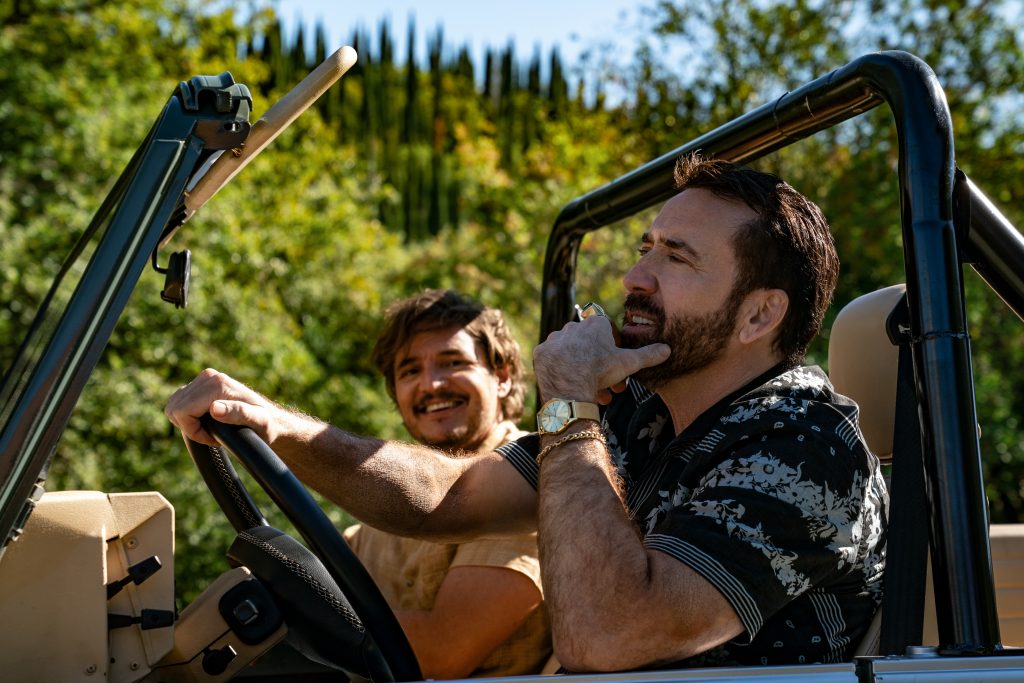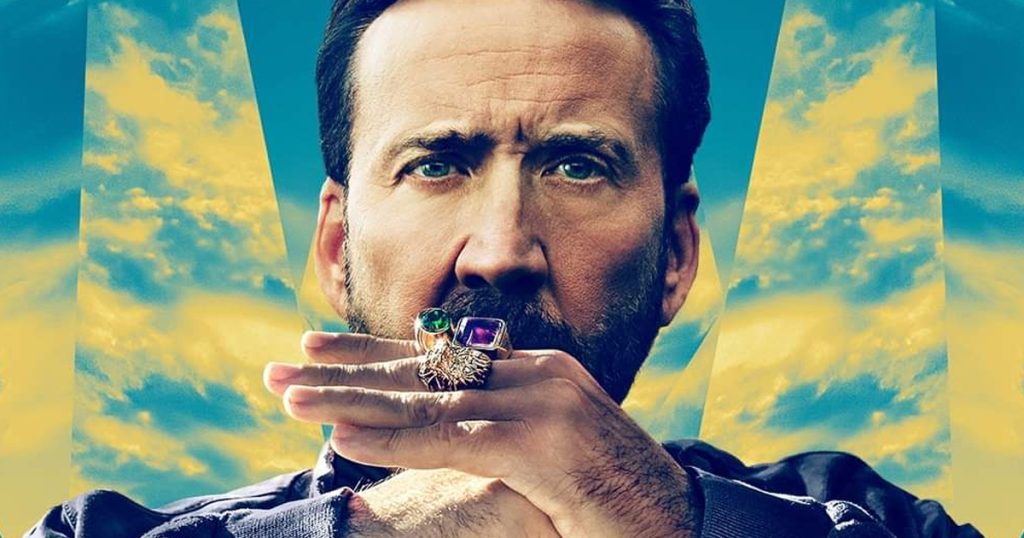You’d think Nicolas Cage would be one of those actors whose ego precedes them. Everyone has more than likely seen him in at least one film, if not dozens, or close to the 105 completed credits listing him as ‘Actor’ on IMDb. There’s the chosen few who have seen them all, but for any of us who know him only in film form, we don’t have an accurate picture of the person he truly is. But that’s not what films do. Lots of people have said that across his career in the large majority of films he’s been in, Nic Cage largely plays himself. How do they know that if they don’t actually know him? If you examine his involvement in film roles as the true thespian he claims to be, it becomes evident that he consistently amplifies the narrative by doing what he does best: make bold choices, and owning them in the process. The myriad criticisms about his performances claiming cheesy hamfistedness and other some such nonsense don’t hold water. But this isn’t the argument I’m making here, nor is it the subject that The Unbearable Weight of Massive Talent cares to approach. The point is Cage has been paving his own weird road to mastery all these years, and we’re lucky to be witnessing it.
Cage has referred to himself as the “American Klaus Kinski,” which makes sense on the screen but unlike Kinski, Cage is more collaborative and agreeable in the craft of filmmaking than his popular point of reference. And unlike the problematic actor, approaching a role modeled after his real-world self carries a level of self-criticism that the German actor couldn’t approach without at least a half dozen tantrums, threats, or ultimatums. But the point Cage makes is he believes the effect of Kinski’s performance comes through his own shaping of a character; taking that raw energy from someone he clearly respects and supplanting it into the visage of his own roles whenever and wherever necessary.

In The Unbearable Weight of Massive Talent, Nic Cage is ‘Nick Cage,’ high-profile actor whose career is identical to the one we know today. He’s in a financial rut and his agent, Richard Fink (Neil Patrick Harris), informs him of an offbeat opportunity to balance his debts: make an appearance at a birthday party for a wealthy fan for $1 million on Mallorca, a picturesque island off the coast of Spain. His relationships with Olivia (Sharon Horgan) and Addy (Lily Mo Sheen), his ex-wife and daughter, have become more distant as Nick has pressed even harder into his own career. He barely has time for his own daughter on the days they’ve scheduled together. When the phone rings, he disappears down a hallway for a business conversation, effectively vanishing from Addy’s precious time with him. Nick doesn’t know how to alter his situation, least of all can’t figure out how to become the person his family needs him to be while maintaining the standards he’s set for his own profession. Caught in a crisis, Nick has no choice to accept his agent’s offer. Feeling that his approach to acting is coming largely unappreciated from fellow filmmakers, he resolves to retire from acting once his job on the island is done.
There he meets Javi (Pedro Pascal), the gentleman whose party he is to attend, and Nick has no qualms about settling into autopilot for the duration. Not an hour since arriving to Mallorca, Javi mentions to Nick that he’s written a script he wants to develop with him, so in Nick’s favor autopilot seems a smart decision at the time. It isn’t until he makes contact with Vivian (Tiffany Haddish) and Ray (Ike Barinholtz), two CIA operatives who have been tracking Javi’s movements and dealings, where things start to get a little real for Nick. Javi is figured to be a high-level executive in a drug ring (if not the head leader) and has to be taken down by any means necessary. The last thing Nick Cage needs in his life is another crisis.
The thing that makes Unbearable Weight special isn’t just the meta-textual approach of Nick’s character but how he and Javi interact and bounce off each other. Javi’s character is very much representative of a large chunk of the audience, his fanaticism for Cage and his past roles ring with an authenticity we can only relate to supportively, thus confirming that the feeling of reverence is a natural one and never out of place. Even Javi’s most ridiculous and momentous gesture to Nick and his accomplishments don’t feel all that far-fetched or unbelievable, rather many people witnessing it would only desire the means to recreate it for themselves. It’s no mistake that the door to this discovery made by Nick Cage in the movie is a mirror on its exterior, marking a point of no return almost expertly.

The film very quickly dispels its surface-level fascination with being a Nicolas Cage film about a Nicholas Cage film once it confidently dives into the relationships it’s woven between everyone around the fictional Nick Cage. Nick and Javi’s relationship go in places we only dream of in meeting our own heroes, despite what the old adage says on the subject — there are always exceptions. Pascal’s performance is wonderful and warm in all the right ways, and it helps that he’s actually a huge fan of Cage’s work in real life.
Nick battles with himself constantly about what he’s doing, what he’s done, and what he’s about to do, personified in the image of his 26 year old self as he appeared on Wogan in 1990, promoting the David Lynch film Wild At Heart. It’s important to note that during the interview, Cage tells the story of his first actualized dramatic role dressing up in cowboy boots, black leather jacket and shades (nearly the way he was dressed during the interview) naming himself Roy Richards and threatening to kick anyone’s ass if they bully his younger cousin Nicky any more. The moment where Cage perceived himself to be at the zenith of his career is the version his current self confides in, becoming the emotional core of the film. It also allows Cage to act off of himself and to confer with the one who stood up for him in school on screen, continuing a dialog with that person who has made it possible for little Nicky Coppola to become himself, seizing the opportunity Roy Richards forged for him all those years ago. His 26 year old persona in the film is credited under the name Nicolas Kim Coppola.
Director Tom Gormican can be accurately identified as another fan of Cage and his work, as his decision to include this version of Cage for the finalized film speaks to his understanding of what makes him so special as a thespian in the film industry. It’s work like this that proves Nicolas Cage has pushed into a different class entirely, transcending Klaus Kinski and all other performers whose energy he works to channel in his own passionate brand of immortalization. The result? An often hilarious journey that isn’t afraid of what others claim it has to be about, celebrating a healthy attitude towards film and those who adore it so.

The Unbearable Weight of Massive Talent will be released in theaters beginning on April 22, 2022.

Andre is an avid film watcher, blogger and podcaster. You can read their words on film at letterboxd and medium, and hear their voice on movies, monsters, and other weird things on Humanoids From the Deep Dive every other Monday. In their “off” time they volunteer as a film projectionist, reads fiction & nonfiction, comics, and plays video games until it’s way too late.







